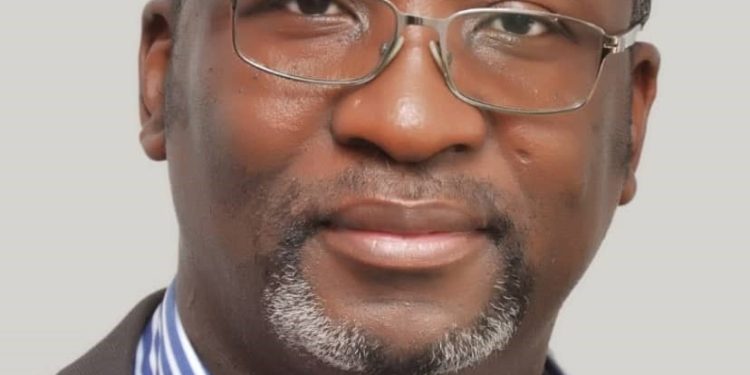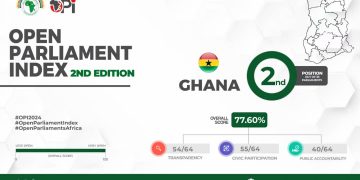The Dragon’s Gift or Trojan Horse?: The Perilous Lesson of Ghana’s Z-9 Chinese Helicopter Tragedy
The nation awoke to shock and grief. A Ghana Air Force Harbin Z-9 military helicopter, en route from Accra to Obuasi for a high-profile mission against illegal mining, slammed into a forested mountainside in the Adansi Akrofuom District of the Ashanti Region. All eight souls aboard perished: They are:
- Dr. Edward Omane Boamah – Defence Minister
- Alhaji Dr. Ibrahim Murtala Muhammed – Minister for Environment, Science and Technology
- Mr. Muniru Mohammed – Acting Deputy National Security Coordinator
- Mr. Samuel Sarpong – Vice Chairman, NDC
- Mr. Samuel Aboagye – Former Parliamentary Candidate, NDC
- Sqn. Ldr. Peter Bafemi Anala – Ghana Air Force
- F/O Manaen Twum Ampadu – Ghana Air Force
- Sgt. Ernest Addo Mensah – Ghana Air Force
This catastrophe, now etched in history as one of Ghana’s worst air disasters in over a decade, ripped through the political and security leadership at a single stroke. The loss is both strategic and deeply human a wound in the nation’s heart and its governance. While the investigation is ongoing, this tragedy demands we confront a broader, uncomfortable question: What risks do sovereign nations incur when purchasing foreign military hardware especially from suppliers like China?
The Harbin Z-9 is marketed as a versatile, cost-effective platform. In reality, its safety track record has been dogged by controversy. Ghana’s tragedy now joins a list of incidents across Africa and Asia. Zambia lost two Z-9 helicopters in separate crashes in 2013 and 2017.Cameroon reported a crash during a training mission in 2010, raising concerns about structural reliability. Mali faced repeated grounding orders after mechanical failures were detected during joint military operations. These patterns raise difficult questions about manufacturing quality, maintenance reliability, and the depth of pilot training provided under procurement contracts.
The problem I for see is the initial price tag of a Z-9 which may appear attractive to budget-conscious governments, but lifecycle costs often tell another story. The Pakistan Navy’s Z-9EC fleet suffered chronic tail rotor blade failures, corrosion issues in maritime conditions, and faulty landing gear—requiring repeated, costly repairs. Several African air forces have faced parts shortages because of delays or inflated costs from Chinese suppliers. In some cases, low-quality aftermarket parts further compromised safety, forcing expensive re-orders or fleet grounding. This is the hidden cost curve as what begins as a “budget-friendly” acquisition often turns into a long-term drain on national defense budgets. That is why in research has shown in buying a helicopter, the need to carefully assess its mission suitability, safety record, manufacturer reliability, maintenance and lifecycle costs, training needs, upgrade potential, and the geopolitical risks of supplier dependence.
Military purchases from global power are never purely commercial; they carry strategic consequences as noted by some experts in aviation. Spare parts, technical expertise, and pilot training for the Z-9 are overwhelmingly sourced from China. In a geopolitical dispute, Beijing could throttle supply chains, grounding aircraft at will. For example, Kenya’s celebrated 2022 acceptance of refurbished Z-9s, hailed as “military cooperation,” also entrenched long-term dependence on Chinese aviation support, narrowing strategic autonomy. For a nation’s air force, such dependencies can quickly become pressure points in foreign policy. Therefore, in my view, developing countries should avoid over-reliance on purchases like the Z-9 helicopter by diversifying suppliers, demanding strict safety and performance standards, building local maintenance and manufacturing capacity, and factoring long-term operational costs and strategic independence into procurement decisions, so they are not trapped in unsafe, costly, or politically compromising dependencies.
The unfortunate helicopter crash has regrettably been exploited for political gain on social media, a development that should deeply concern all Ghanaians as it contributes nothing to national progress. It is distressing that such a tragic event is used to assign blame to the sitting president, with some even resorting to threats against him, his family, and security personnel—while law enforcement remains seemingly passive. Ghana is a nation governed by the rule of law, and all citizens must uphold this principle rather than resort to political opportunism. In a deeply polarized political environment, tragedies like Black Wednesday often become arenas for partisan conflict, with online platforms flooded by speculation from opposition figures and self-styled prophets alike. This cacophony of voices risks eroding public confidence in official investigations and hinders the possibility of calm, constructive policy discussions.
The unfortunate helicopter crash has regrettably been exploited for political gain on social media, a development that should deeply concern all Ghanaians as it contributes nothing to national progress. It is distressing that such a tragic event is used to assign blame to the sitting president, with some even resorting to threats against him, his family, and security personnel while surprisely the law enforcement remains seemingly passive. Ghana is a nation governed by the rule of law, and all citizens must uphold this principle rather than resort to political opportunism. In a deeply polarized political environment, tragedies like Black Wednesday often become arenas for partisan conflict, with online platforms flooded by speculation from opposition figures and self-styled prophets alike. This cacophony of voices risks eroding public confidence in official investigations and hinders the possibility of calm, constructive policy discussions.
About Author
Dr. Bernard Tetteh-Dumanya is a distinguished Ghanaian financial economist and consultant with nearly three decades of experience spanning academia, corporate finance, and agribusiness. He has held pivotal roles at institutions such as UBA Ghana, SIC Financial Services, Empretec Ghana, and the Swiss International Finance Group, reflecting his profound understanding of global finance. Renowned for pioneering efforts in risk management, compliance, and corporate strategy, Dr. Tetteh-Dumanya has significantly contributed to Ghana’s financial landscape. His expertise encompasses venture capital, business and financial reengineering, and fundraising, playing a crucial role in the growth and development of numerous entities. Driven by a commitment to capacity development, he has provided consultancy services to a diverse array of local and multinational organizations, including GIZ, AGRA, SNV, DANIDA, and USAID. As the CEO of SGL Royal Kapita, he has introduced innovative investment services targeting Ghana’s agriculture sector, aiming to support farmers and agribusinesses in achieving financial stability and growth. Beyond his professional endeavors, Dr. Tetteh-Dumanya is an influential columnist, offering incisive analyses on Ghana’s economic policies and advocating for strategic financial mechanisms to enhance the nation’s economic sovereignty.








